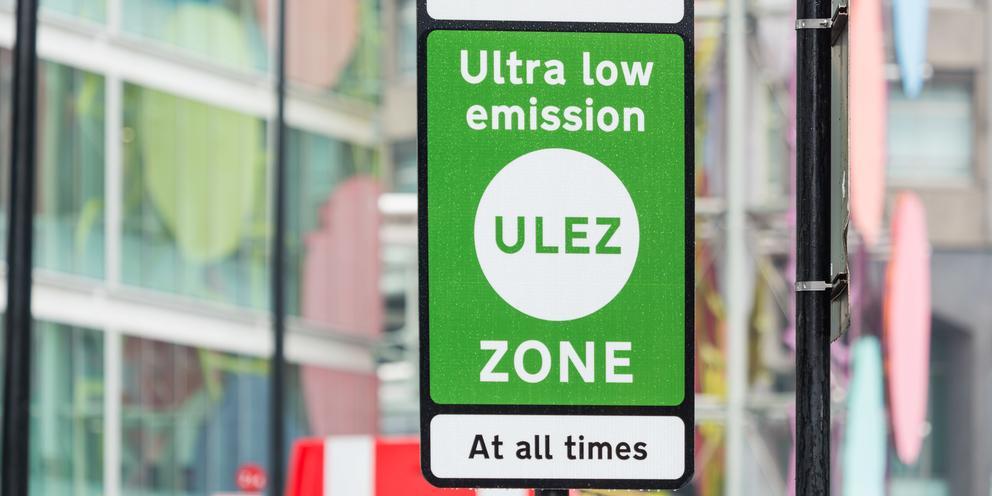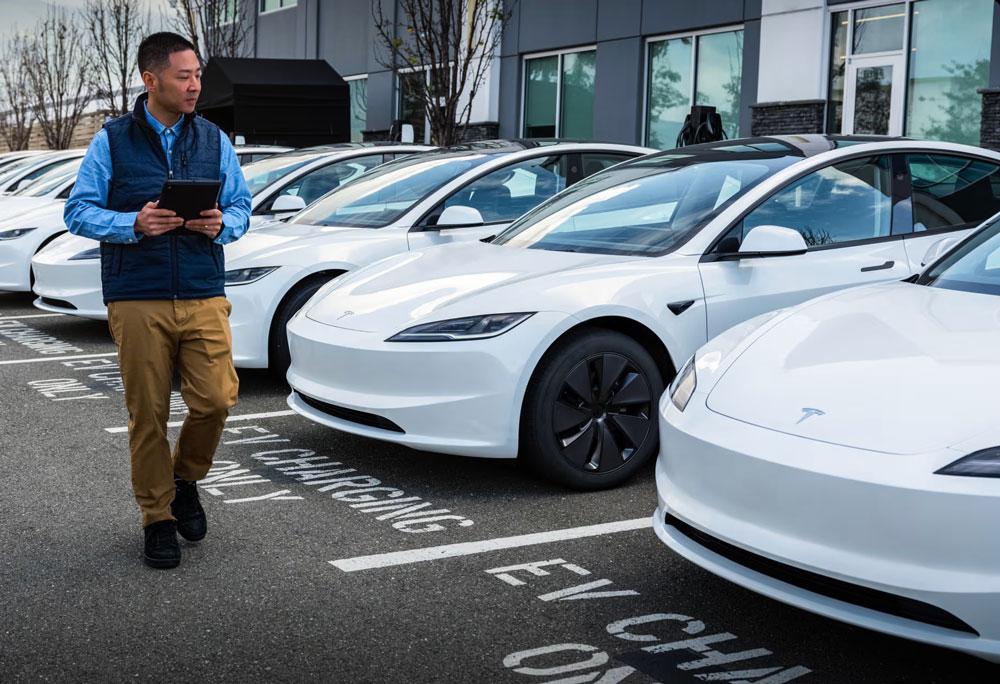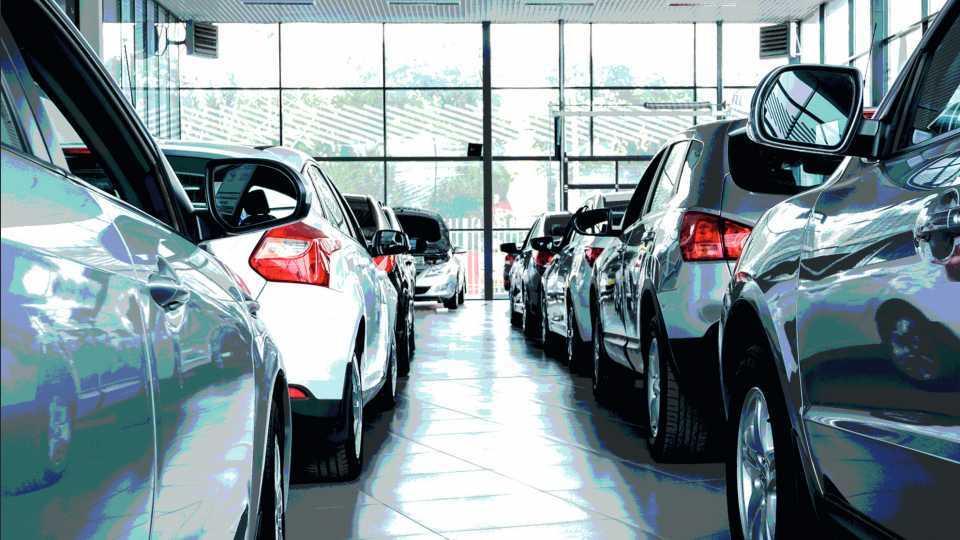With the ULEZ scheme now operational in London and other clean air zones coming into place in the next couple of years, now is the time for businesses to make the switch to a cleaner, emission-compliant fleet. What are the benefits of using the leasing or rental model to make the switch?
London’s Ultra Low Emission Zone (ULEZ) came into force in central London on 8 April.
Drivers of older vehicles with engines that do not comply with the required emissions standard are now charged £12.50 each day to enter the zone at any time. Anybody who does not pay the charge will face a fine of £160. Lorries meanwhile could face £1,000 fine.
The scheme is said to affect around 40,000 vehicles, and aims to reduce toxic emissions by around 45 per cent within two years.
Whilst London is the forerunner in England, clean air zones are due to be introduced in many towns and cities across the country in the next couple of years. Scotland meanwhile already has its first Low Emission Zone (LEZ) in Glasgow city centre.
For unprepared businesses with fleets, air quality measures could cause disruption.
Earlier this year, Europcar Mobility Group UK researched businesses that use vans to find out about their anticipated priorities and challenges for 2019 and beyond. Dan Hawkes comments on the research: “The resounding response was that the ULEZ was going to catch a lot of organisations out. Over a quarter of businesses said that they travel into London on a regular basis, yet 92 per cent admitted that there were vehicles on their fleet that were more than three years old. With over a quarter (28 per cent) saying that between 26 per cent and 50 per cent of their fleet was made up of vans more than three year old, this presents a huge financial burden if long term lease or outright acquisition is considered as the only option.
“And while this research focused on van users, we actually feel that the car situation is likely to be a similar story.”
While Euro 6 diesel and Euro 4 petrol engines are ULEZ compliant, now may be a good time for fleets to switch to alternatively fuelled vehicles and different mobility solutions, to future proof their fleet for any future, even stricter rules. However, some may struggle to afford the switch to expensive new low emission vans and trucks and may be able to manage their costs better by leasing or hiring a compliant car, van or truck.
Mark Gallagher from Grosvenor Leasing comments: “EVs can be more expensive to buy, and the forecasted resale values are more difficult to predict, which means it may be seen as a risky option for companies to buy them. Leasing transfers that risk of ownership to the contract hire company and enables you to fix your costs, which makes it potentially more attractive.
“Realistically, however, now may not be the right time for higher mileage drivers to even consider an EV and are better off with a very low emission petrol or diesel car.” Mark adds.
Rob Mills from Daimler Fleet Management added: “Fleet Managers should certainly start to replace older vehicles that will be banned in ULEZ areas. They should be looking to ensure their fleet replacement policy is reviewed and fit for purpose as we will experiencing more change over the next five years than we have seen over the past 20.”
Stephen Greenstreet from Greenfleets points out that companies that already use leasing as their method of obtaining cars or commercial vehicles, will already be operating ULEZ compliant vehicles. He says: “Leasing enables companies to obtain the latest engine technology with the lowest CO2 emissions. With the average contract being approximately three years, this enables companies to continue to obtain the lowest CO2 vehicles and keep up with the ever-decreasing targets set by the government, in ULEZ zones and BIK taxation.”
Rob believes that giving fleets flexibility in changeable times is key. He says: “Leasing companies are increasingly looking at more flexible funding options so fleet managers are not necessarily locked into long term leases. This will also enable fleet managers to take advantage of further advancements in EV technologies as and when they become available.”
Dan Hawkes echoes this thought and speaks of Europcar’s own position: “In the last couple of years, Europcar Mobility Group UK has been focusing more and more on how to help businesses keep up with legislation as well as the moveable feast of the Benefit-in-Kind tax regime. Instead of firms having to invest outright in ULEZ-complaint models, we have developed a long-term rental offer that gives both flexibility and certainty.
“Europcar Advantage provides a really important solution for businesses that want to future-proof their operations without tying up capital on outright vehicle purchases or committing to a long-term lease deal. With access to brand new, and therefore compliant, cars and vans, Europcar Advantage enables firms to test the suitability of alternative fuelled vehicles before investing in them for their own fleet.”
Mobility credits
There have been calls from the BVRLA, the association that represents the leasing and rental industry, to include ‘mobility’ credits in future scrappage schemes, which could be used on car hire and car clubs, as well as public transport. This would reduce car ownership and lead to reduced emissions and congestion.
Commenting on this concept, Dan Hawkes said: “The introduction of ‘mobility’ credits is a tremendously exciting opportunity for businesses. Delivered in the right way, it could boost more sustainable journeys across all areas of mobility. Not only would mobility credits remove older and more polluting vehicles from the roads, but they would promote urban vehicle mobility as a whole through the increase of space in urban areas.
“At Europcar Mobility Group UK, we see real value in supporting initiatives that address the reduction of emissions and promote positive change in behaviours.
“However, in order for a mobility credit scheme to reach its full potential, it’s important that it is implemented through a consolidated MaaS platform. This would tackle the challenge of usership vs ownership when it comes to driving and provide users with the option of a car when they need it, therefore reducing unnecessary car ownership.”
If some businesses are ready for a more flexible approach to meeting their mobility needs and do not just want to replace their vehicle with another, then the opportunity to use the scrappage scheme to fund other initiatives should be welcomed, believes Rob Mills. He says: “Businesses can look to use the grant to best effect whether that’s to support the development of their charging infrastructure or to switch their drivers into car clubs or promote the use of public transport. Perhaps any scheme could look to have a sliding scale that values for instance the use of public transport higher than acquiring another new vehicle.”
Mark Gallagher meanwhile believes that it is still early days for a scheme like this, as the infrastructure and technology to support it is in its infancy. He said: “Its valid that there should be incentives, such as mobility credits. But for drivers to come out of polluting cars in cities, you need the car clubs and infrastructure to make this work – and even in the cities, its still early days. When it comes to mobility credits for things, like car hire, we also have to be realistic about the value of the credits and how much car hire time you could utilise.
“It’s the classic ‘product lifecycle’. There will be some early adopters for this type of scheme, but the whole area needs to become more mature and robust to appeal to a mass market.”
The future of travel
The government’s recent ‘future of mobility: urban strategy’ examines transport innovation in cities and towns. Jesse Norman, Minister of State for Transport says in the foreword that “radical new technologies are emerging that within a generation will transform everyday journeys.”
The strategy says that new types of travel and new business models, enabled by data and connectivity, automation and electrification, are starting to transform how people and goods move. If the transition is well managed, it could help tackle urban challenges such as congestion and air pollution. It can also widen access to mobility for disabled people and older people.
“We find ourselves on the cusp of a mobility revolution, where advances in technology are bringing together numerous forms of transport, enabling better journey optimisation than ever before,” comments Dan Hawkes. “Consumer trends are also moving away from ownership to usership, influenced not only by developments in technology but also by other external pressures such as limitations on parking spaces, insurance premium increases and more of a conscience around our impact on the environment.
“Technology is certainly conducive to the progression of mobility in urban areas and already plays a large role in how we think, live and travel. Our focus is to capitalise on new technologies to give organisations an integrated mobility solution that can offer the best customer experience across a multitude of travel options, with an underlying commitment to increased sustainability.”
Pointing out that the technical elements have to be joined up before mobility as a concept can fully take off, Mark Gallagher says: “Technology will only ‘fully’ revolutionise the way we travel once it’s joined up. This is what MaaS is all about - the separate elements are all working well.
“The converged model whereby you can enter two destinations and the App will work out the modes of transport and provide one ‘ticket’ for taxis, buses, trains etc is still in its infancy, but won’t be long before its part of our everyday lives.”
Rob Mills echoes this thought: “Technological developments that can seamlessly connect and book multiple modes of transport including public transport will drive a more seismic change to how we approach our lives. Our cars are un-utilised for over 80 per cent of the time so the opportunity to only pay for mobility when needed will become an ever increasing popular option.”
Stephen Greenstreet says: “We are currently going in to a stage of massive change with the way we use vehicles. It is very early days but one day we will look back on how we once used vehicles and it will look like life without mobile phones.”
When it comes to acceptance of technology, Mark believes that there is a generation divide. He says: “In terms of the way we think, this is very much down to how old you are! At Grosvenor, our in-house software and App development team is very much focused on the new way of thinking of the Millennials, who by 2025 will make up 75 per cent of the workforce.
“They are tech-dependent, with it being an integrated part of their everyday life. So, when the older generation still has a sense of wonder that an App can enable them to book a taxi which they never had growing up, the millennials are saying, ‘that’s fine, but why can’t it do this? – because that’s what I need it to do.’ Its them that will drive change.”
Flexible mobility solutions may also benefit employers due to the “transient nature of the UK workforce”, believes Dan. He says “Firms aren’t always sure of what employees they will have in the future – and what their mobility needs will be. That’s where car share fits in.”
Other services
Aside from the vehicles themselves, what other services can leasing and rental companies offer fleet operators in the area of low / zero emission vehicles?
With so many different products on the market, Stephen Greenstreet believes that offering trusted advice and consultation to the customer is key. He says “Our customers are not all experts on EVs or ULEVs but we are, so the value we can add to a vehicle fleet is invaluable. It is about supplying the right vehicle for the job/person based on CO2 emissions, type of usage and annual mileage, to ensure the company taking the lease is reducing their whole life costs and their employees are mitigating their BIK implications as much as possible.”
Stephen warns that some companies might just supply a plug-in hybrid vehicle with an electric range of 25 miles to a company car driver with an annual mileage of 25K plus, just to save them BIK taxation. “This is completely wrong,” says Stephen, “and is a very good reason why companies should seek the correct advice from professionals in this market and not just take a lease from the company that offers the easiest route to a deal”
Rob Mills agrees that the consultative nature of leasing companies is important. He says: “Services like fleet management, driver training, telematics, and downtime management are all just as important when running a fleet of low emission vehicles as they are for a fleet of combustion vehicles.
“The pace of change and uncertainty over the future development of both vehicle technologies and the legislative environment is causing many businesses to delay further investment, therefore our role as advisors and educators is paramount.”
Explaining why Grosvenor launched its 0Zone service, Mark Gallagher said: “We recognised that companies needed pro-active advice and support to help them navigate their way smoothly towards ULEVs and EVs.”
“Over time it has evolved significantly. For instance, we can now provide ‘funded’ installations of EV charging points supported by consultancy and advice.
“0zone has become an award winning service, providing customers with support in reaching timely decisions about when their green strategy should begin, budgeting advice, forecasts and help with the financial implications of choosing EVs and ULEVs.”
Technology that gives insight into business mobility is valuable for businesses. Dan Hawkes explains: “Insight on mobility usage has to be at the heart of firms successfully managing and reducing their emissions over time. Europcar Mobility Group UK has, therefore, focused considerable investment in our portal – Europcar One – that provides a 360 degree view of the mobility solutions being used by our customers.
“Not only does Europcar One streamline the process of booking and monitoring mobility usage for the best journey optimisation, but it delivers valuable MI to help fleet operators better understand the use of their vehicles and the movement of their staff. This provision of data helps inform decisions that then drive efficiencies which can reduce both the overall cost and the environmental impact of an organisation’s fleet.”
With the sizeable changes happening with environmental legislation, the restrictions and requirements of vehicles will no doubt get stricter. All our panelists agree that using the leasing or rental model, or using different mobility solutions, can help stay compliant and ahead of the game.






